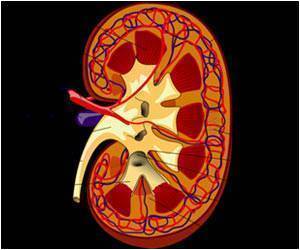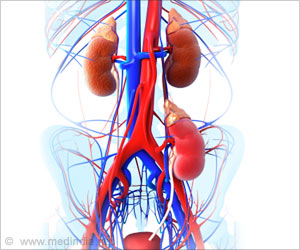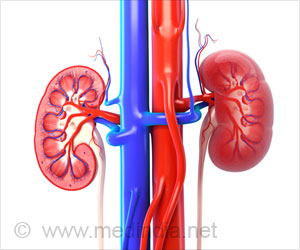Highlights
- In chronic kidney disease, A group of molecules called Tri-Carboxylic Acid (TCA) cycle metabolites are found to be affected
- The TCA cycle is a process in which fuel molecules are converted into energy and this usually occurs in mitochondria, the energy centers
- Due to lack of this energy conversion, patients with more advanced stages of CKD suffer from severe fatigue
"We analyzed these small molecules in the blood and urine of non-diabetic patients with chronic kidney disease and compared the results to samples obtained from a group of healthy individuals," said Stein Hallan, M.D., first author of the study published in EBioMedicine.
"Importantly, our study identified that a group of molecules called tri-carboxylic acid (TCA) cycle metabolites are significantly affected in chronic kidney disease."
The TCA cycle and its significance
The TCA cycle is a process in which fuel molecules are converted into energy. This activity occurs in mitochondria--the energy centers of all types of cells. The fact that the TCA cycle is significantly impacted in chronic kidney disease supports the view of CKD as a state of mitochondrial dysfunction, said study senior co-author Kumar Sharma, M.D., FAHA, chief of nephrology and founding director of the Center for Renal Precision Medicine at UT Health San Antonio.
Dr. Hallan has been an active collaborator with Dr. Sharma and has done several sabbaticals with Dr. Sharma in San Antonio and San Diego.
The new study also found that in patients with CKD, expression of genes that regulate the TCA cycle was significantly reduced compared to healthy individuals.
Molecular clues to the kidney disease
Researchers hope that a new breakthrough therapy could arise from these insights. "This is certainly our goal," Dr. Sharma said. "Metabolomics, the analysis of small molecules in biological samples, has revealed numerous abnormalities in the blood of uremic patients, whose kidneys are unable to eliminate the body’s waste products.
Further exploration of the TCA cycle, using metabolomics, may identify novel therapeutic targets for CKD and in turn may help us evaluate the effects of promising interventions."
The Center for Renal Precision Medicine at UT Health San Antonio contributed to the work and will expand upon it in future studies. The Kidney Precision Medicine Project, which is funded by the National Institutes of Health at centers including UT Health San Antonio, and The University of Texas System STARs Program will be part of the ongoing research.
STARs awards, established by the UT System Board of Regents in 2004, are granted to UT System institutions to help attract and retain the best-qualified faculty. (STARs is short for Science and Technology Acquisition and Retention).
Reference
- Drs. Hallan and Afkarian et.al. Down-regulation of the Citric Acid (TCA) Cycle in Non-diabetic CKD Patients, EBioMedicine (2017).DOI: http://dx.doi.org/10.1016/j.ebiom.2017.10.027
Source-Eurekalert
















